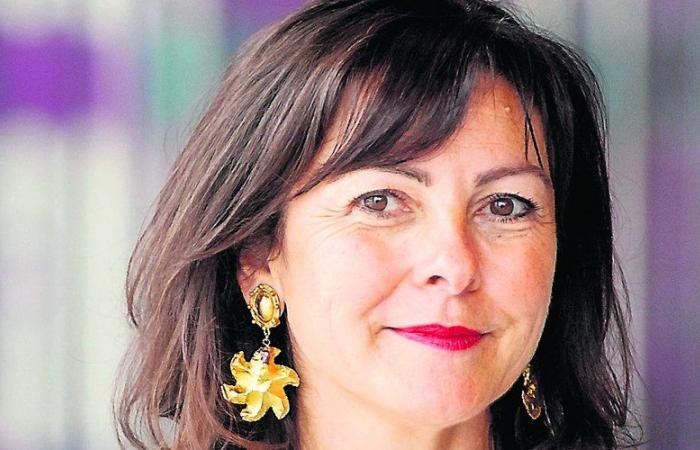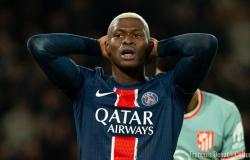
Carole Delga, the president of the Occitanie region, the leading Rugby region in France, unveils the “rugby” strategy of a land like no other.
Occitanie is the leading rugby region in France with the largest number of licensees, clubs, but also titles (Brennus). Can we imagine your pride and the importance of this sport in Occitania?
Rugby is an integral part of our history, our culture, our identities in most families in our region. This sport shares positive values with Occitania and benefits from a good image despite recent controversies. The Brennus shield has not left the territory since 2018 and, as you say, it is a source of pride. These results owe nothing to chance. What would professional rugby be without the exceptional amateur pool in our towns and villages, the training centers and our capacity to welcome talent from elsewhere? I often emphasize the “pack” that I embody with local elected officials, civil society and the inhabitants of our region. The conduct of public affairs is a lot like that of a rugby team. At least, that's how we see it in Occitania: the first of all talents is the collective.
How do you view rugby? What is your commitment to amateur clubs, to this regional rugby which is suffering?
I am very concerned about the difficulties of amateur clubs in rural towns and working-class neighborhoods. These clubs participate in living together in a territory, in its social and festive animation. They allow us to build strong relationships and bring together all generations. This rugby also promotes the sporting practice of as many people as possible by relying on our volunteers who must be better supported and whose mission must be valued. This is one of my priorities at the head of the Occitanie Region. We support all levels of clubs: from the purchase of small sports equipment, through training assistance, to supporting professional clubs which promote Occitanie internationally.
The Occitanie Region is a driving force in this societal role, integration and education for young people. What is your vision and the evolution that you wish to bring within an ever more individualistic society?
I believe in the emancipation of the individual through education, through mobility, through work. Access to sport like culture is inseparable from the construction of an individual but also of a peaceful and united society. On the other hand, withdrawal into oneself and refusal of the other have never brought anything. It is by giving everyone the ability to choose their destiny and by responding concretely to citizens' concerns that we will restore hope and confidence in the future.
As President of the Regions of France, you have worked considerably for the success of the 2023 World Cup in all territories. What memories do you have of it and what assessment do you make for Occitanie?
First of all, the wonderful atmosphere that reigned in the bars, in the villages, the fan zones and of course in the stadiums. Moreover, so that as many people as possible can participate in the celebration, the Occitanie Region has allowed 3,000 young rugby players to attend the matches at the Toulouse Stadium. I am also thinking of the reception of several national teams, such as Japan, with which Occitanie maintains intense and constant ties of cooperation, Samoa and Portugal. This was also the case for a number of French and foreign delegations for their preparation for the Paris 2024 Games. Because we have invested in modern equipment adapted to the requirements of high-level sport, more than 60 countries from 5 continents participated. the choice of Occitanie.
What is your opinion of the French rugby team? Will she beat the Blacks during this tour?
I am a supporter, I have a personal opinion. But I would be careful not to make the slightest technical comment on the French XV even if Didier Lacroix and my vice-president Kamel Chibli have been questioning me regularly since the 2023 final of the Top 14: in the 75th minute, while everyone was bowing their heads (22-26), I announced to them that the rouge-et-noir would win against this great team from La Rochelle. Romain Ntamack helped me a little (laughs). Beating the New Zealanders, the Blues did it at the opening of the World Cup. They are able to do it again.
How do you analyze the return of Super Dupont, also captain, and his contribution to the Blues and the promotion of our sport?
The collective does not exclude the emergence of talents. Antoine Dupont is a role model for young people and an essential leader who, despite “starization”, has kept his feet on the ground. In this case that of Magnoac in the Hautes-Pyrénées which I know well since with Comminges we are neighbors. He is undoubtedly a fantastic ambassador for rugby. At the Olympic Games, his presence galvanized his teammates and this medal, the first gold, put the French delegation on the path to success. His strength is also in making others better and that is what I admire. His return to XV was expected because we missed him a lot during the last 6 Nations Tournament.
What is your view on the various unacceptable extra-sporting affairs this summer?
Should we redouble our actions and commitment to young people, particularly to instil and preserve these values specific to sport, of integration, respect and solidarity? First of all, I renew here my thoughts and my support to the parents, to the sister, to those close to Mehdi Narjissi, to his teammates and to the leaders of Stade Toulousain. It’s a huge tragedy. Concerning what you call “business”, it is up to the justice system to shed light and to the FFR management team to take the necessary sanctions. I say it here: with racism, there is zero tolerance! The blue jersey is sacred and commands exemplarity, tolerance and self-control. Sport certainly does not escape the excesses of our society, but it must remain this vector of inclusion, this bulwark against addictions, sexist and sexual violence, and discrimination of any kind. Its societal role is essential.
Occitania was particularly spoiled in this historic year, between the Olympic Games and the incredible double at the Stade Toulouse. With so many Olympic and Paralympic medals, with exceptional champions like Léon Marchand, Shirine Boukli, the Lebrun brothers, how can we work to intensify and develop the practice of sport?
We are proud of our champions, the clubs, the educators who brought them to this level. We saw last weekend, at the WWT tournament in Montpellier, how the people of Occitanie transcend Félix and Alexis Lebrun. The popularity and success of our champions triggers an influx of new licensees in a diversity of disciplines. Our duty is to support this tremendous momentum by helping clubs equip themselves, invest in local sports equipment, train educators, and encourage volunteering through strong choices. Occitanie is one of the most sporting regions in France with nearly 4 million practitioners, but we can go even further. It’s an issue of public health and living together…





